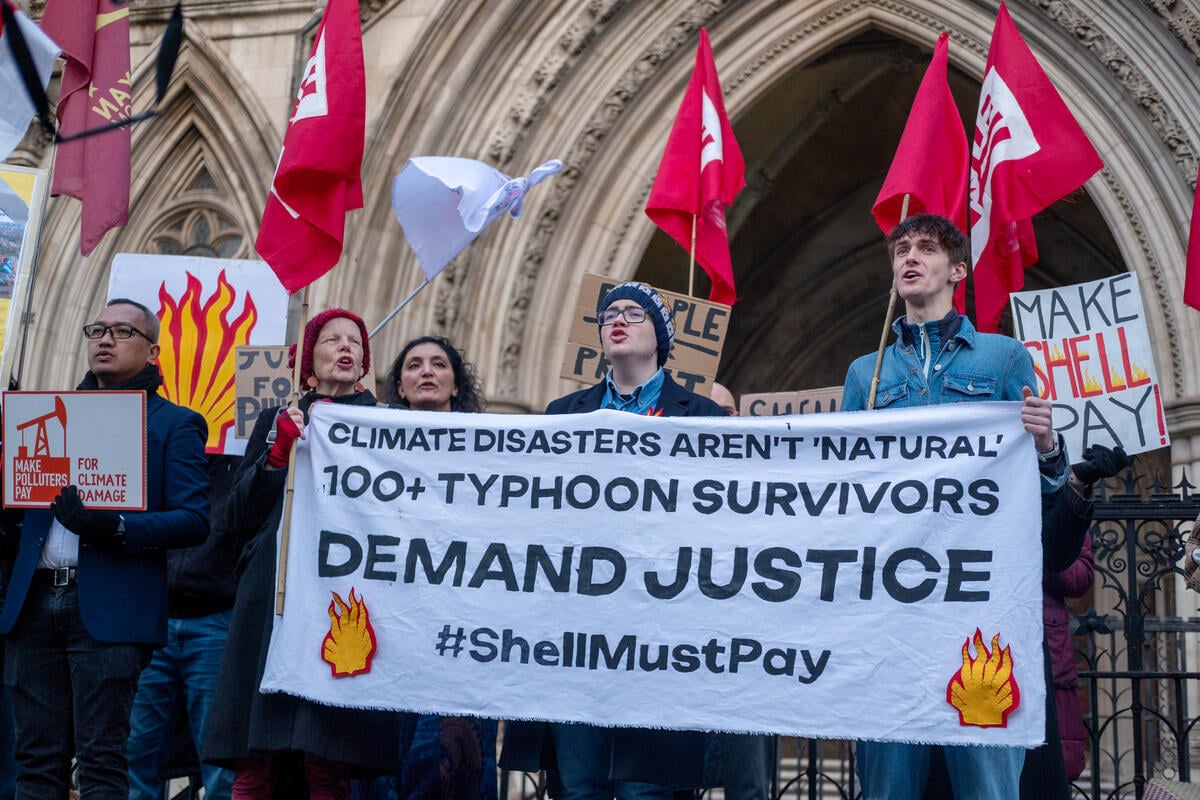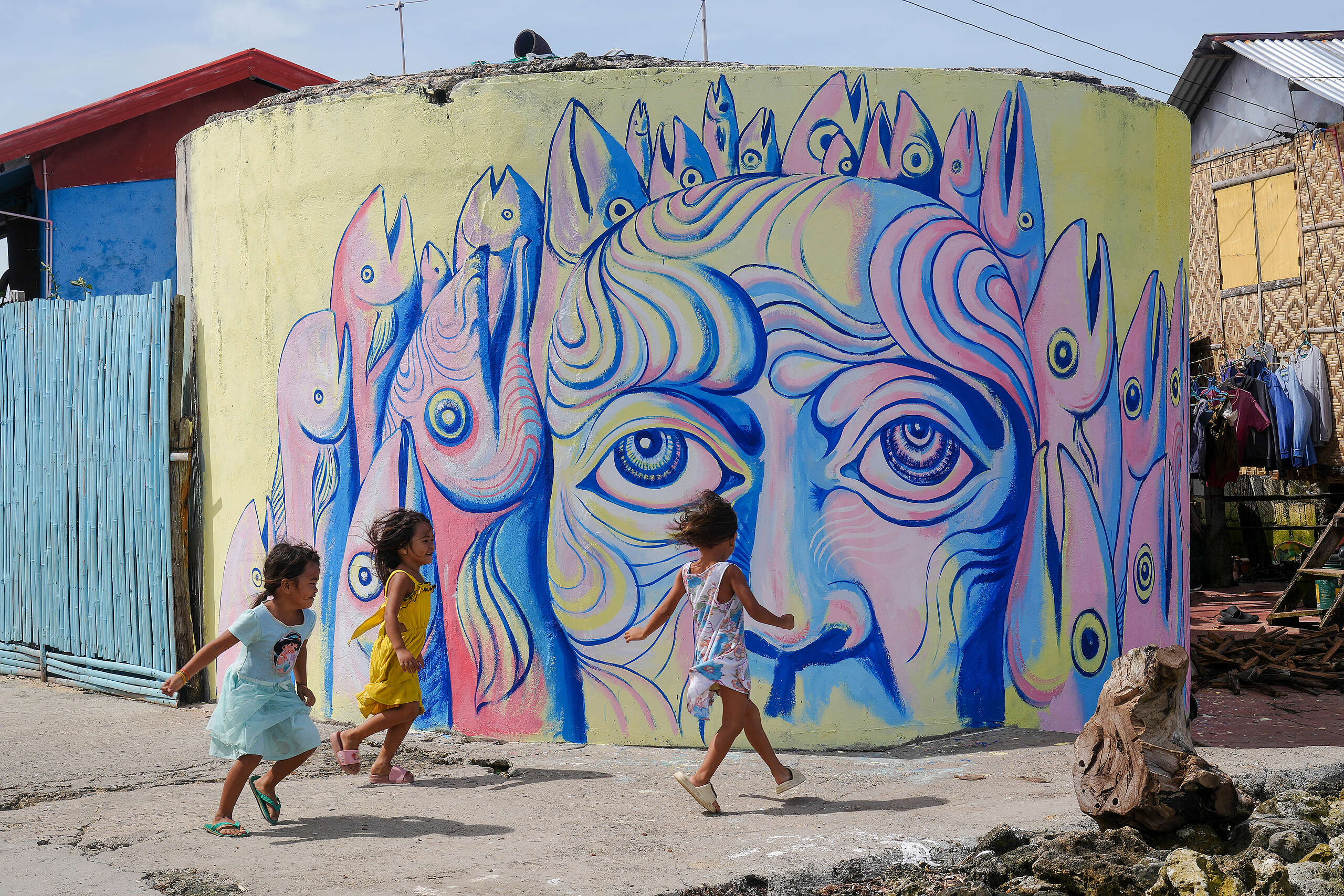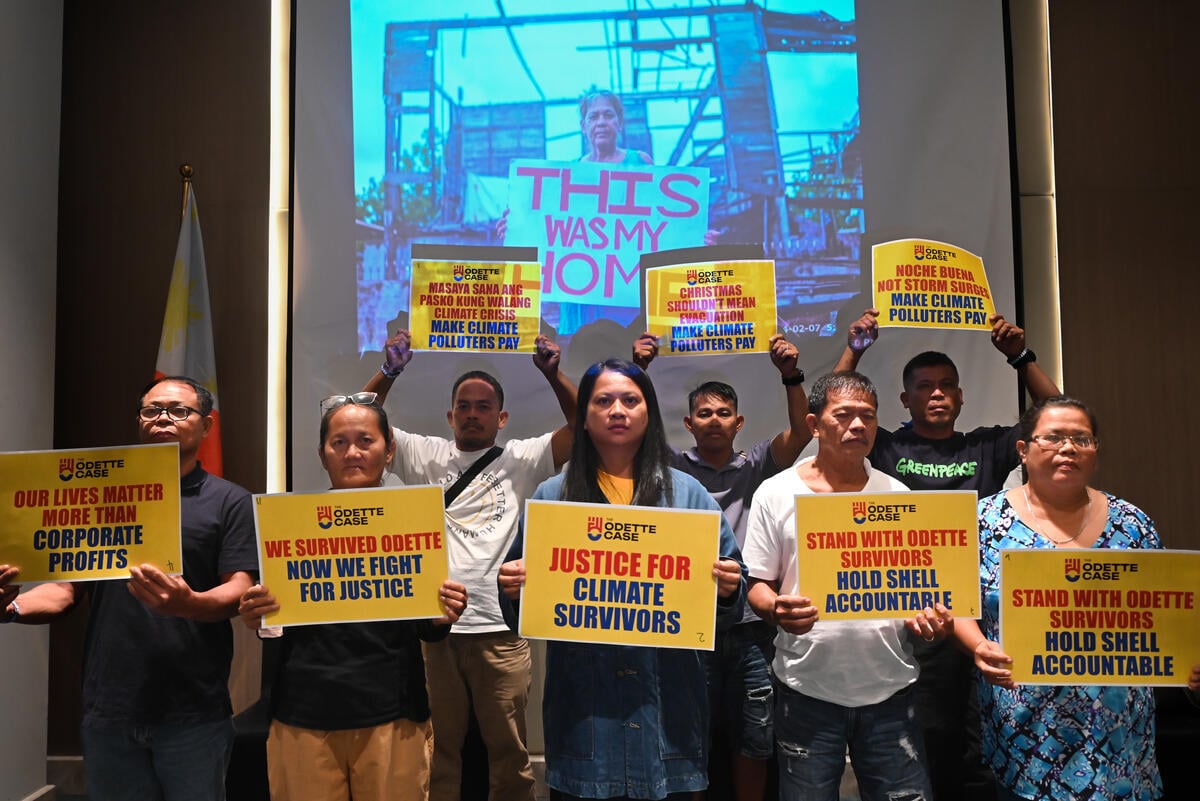Tubigon, Bohol — Multi-sectoral groups from Bohol comprising communities, CSOs, academia, church groups and youth, together with provincial and municipal LGU representatives came together today in a forum aiming to gather Boholanos to champion climate justice and accountability. The forum, organized by Greenpeace Philippines, was held in Tubigon, where many from communities from the municipality’s small islands are already actively calling for climate justice on national and global platforms.
“Sa dami ng epekto ng climate crisis, halos lahat na naranasan na namin: ’yung pagtaas ng tubig, ’yung bagyo, ’yung pag-init ng karagatan,” said Trixy Elle, a leader and representative of Batasan. “Kailangan ’yun ipaglaban kasi climate justice is wealth na p’wede kong ipasa sa mga susunod pang henerasyon. Isa rin ’yung patunay na kahit gaano man kami kaliit, may magagawa kami.”
The forum comes at a time when the landscape on climate justice and accountability is gaining ground in the Philippines as well as internationally. Last July, the International Court of Justice issued an Advisory Opinion on Climate Change that lays out the obligations of countries with respect to climate justice, and the consequences of not meeting the obligations.1 Many experts have hailed this as a victory for climate justice for communities around the world in the frontlines of the climate crisis, particularly since the Advisory Opinion has ushered in a new era of climate accountability. The AO aligns with the final report of the Philippine Commission on Human Rights’s National Inquiry on Climate Change final report which focused on the responsibility of major emitting companies in harming the rights of Filipinos from corporate activities that are linked to climate impacts.
The island of Bohol was among those that suffered much under Super Typhoon Odette in 2021. The cyclone killed 405 people across the Philippines, leaving behind billions worth of damages to infrastructure and agriculture.2 Four years after, Boholanos are still reeling from loss and damage and the compounding effects of slow-onset climate impacts. Small island communities are among those who continue to be the worst affected.
“Bohol is no stranger to compounding climate impacts, and as they become more severe, communities must take inspiration from the findings of the International Court of Justice, together with governments, demand reparations from these oil, gas, and cement companies that perpetuate their suffering,” said Greenpeace Philippines climate campaigner Jeff Chua. “Many communities in Bohol are standing up for climate justice and are demanding accountability particularly from fossil fuel companies. We believe this is something we should be proud of in Bohol, and in the Philippines. We may be one of the countries most vulnerable to the climate crisis, but we are fighting back and asserting our rights–with Boholanos leading the way.”
The event included workshop sessions with civil society organizations, officials from local government units, delegates representing youth, women, fisherfolk, church groups and academia to draw a clear picture on how grassroots communities want to see the historic ICJAO ruling be applied at the local level. The discussions were then consolidated into a shared action agenda, laying out the community’s next steps in attaining climate justice and accountability.
The municipal government said “This forum is not just a gathering: it is a call to action. We are here to speak truth to power, demand accountability to those who contribute to climate harm and strengthen our collective advocacy for climate justice,” in the welcome read by Municipal Administrator Hennessey Ramos on behalf of the Mayor Marlon R. Amila of Tubigon. “As we embark on this journey together, let us remember that each of us has a role to play in combating climate change. The voices of our communities, particularly those most affected, must be heard and amplified. Together we could advocate for a just and resilient future. Let us make today a pivotal moment in our fight for climate justice,” she added.
Greenpeace Philippines is a locally-registered not-for-profit, non-government environmental organization established in 2000. We work directly with communities on the frontlines as they protect the environments they call home. Our work in the country in the past two decades has focused on helping enable systemic changes in society to ensure a just, green and peaceful future.
In 2020, Greenpeace worked with the Rice Watch Action Network to craft the “Bohol Climate Emergency Response Roadmap,” a grassroots led initiative that can support LGUs on the work to build community resilience in small islands. Greenpeace also contributed to the response work in the aftermath of STY Odette in 200 and 2021, working with RWAN and local volunteers in the conduct of community kitchens and materials response. Following the typhoon, the organization installed solar panels in small island communities in Mantatao, Inanuran, Batasan, and Bilangbilangan. At present, Greenpeace is working with communities to build awareness on climate justice and accountability and to work with communities to amplify and share their stories and their demands for justice at national and global platforms.
Notes to the Editor:
[1] Obligations of States in respect of Climate Change
[2] Situational Report for TC ODETTE (2021)
For requests for interviews and other information, please contact:
James Relativo, Communications Campaigner
Greenpeace Southeast Asia – Philippines
[email protected] | +63919 069 3424 (Viber & WhatsApp)



